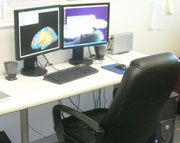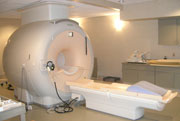Research Focus

Research in the Marois lab centers on two main main topics. First, much of the lab’s work focuses on understanding the neural basis of attention in humans using fMRI and psychophysical tools. We are particularly interested in understanding the neural basis of attentional capacity limits (Why can we only attend to few objects at a time? Why can’t we carry out more than one task at a time?). We are also exploring the nature of the relationship between attention, working memory and awareness.
The second research thrust of the lab concerns the nascent field of ‘Neurolaw’ in collaboration with faculty members of the Law School. Specifically, the lab is is interested in elucidating the brain mechanism underlying legal and punishment decision-making, as well as understanding the effect that legal instructions have on these brain mechanisms and decision processes.
Participate in a Research Study
The Marois Lab continually recruits volunteers from the public to participate in behavioral (attention or memory tasks) and imaging studies. Behavioral experiments, both those for pay (about $12 per hour) and those for course credit, are listed on Vanderbilt’s psychology research sign-up system called SONA. Imaging studies take place in the fMRI scanner (see below). The Center for Functional Neuroimaging at The University of Pennsylvania has posted an excellent video about participating in fMRI research here. For more information about volunteering for an imaging experiment, please contact Lauren Hartsough.
Research Facilities

The Marois Lab includes four behavioral testing rooms equipped with eye tracking systems. Data analysis (fMRI and behavioral) is performed on PC and Mac workstations. Like many fMRI researchers at Vanderbilt, we primarily use Brain Voyager and Matlab for our imaging analyses. All imaging is conducted at the Vanderbilt University Institute of Imaging Science in the Center for Human Imaging.
